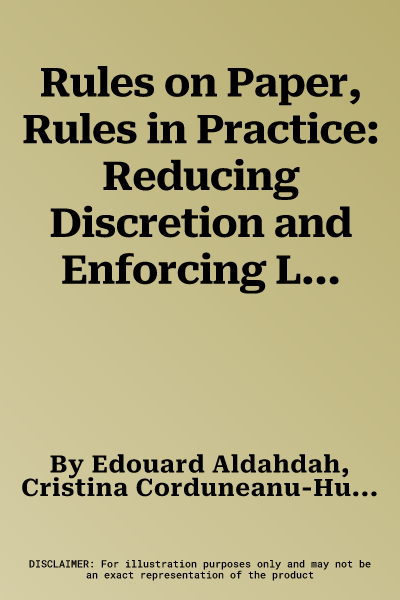Edouard Aldahdah
(Author)Rules on Paper, Rules in Practice: Reducing Discretion and Enforcing Laws in the Middle East and North AfricaPaperback, 5 June 2016

Temporarily out of stock
Free Delivery
Cash on Delivery
15 Days
Free Returns
Secure Checkout

Part of Series
Directions in Development
Part of Series
Directions in Development - Public Sector Governance
Print Length
176 pages
Language
English
Publisher
World Bank Publications
Date Published
5 Jun 2016
ISBN-10
1464807582
ISBN-13
9781464807589
Description
Product Details
Book Format:
Paperback
Date Published:
5 June 2016
ISBN-10:
1464807582
ISBN-13:
9781464807589
Language:
English
Pages:
176
Publisher: